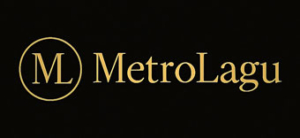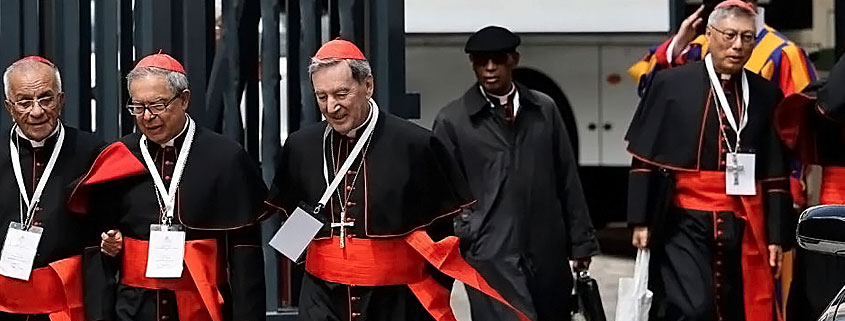✝️A Historic Turning Point for the Catholic Church
At MetroLagu.vin, we recognize that certain moments in global history unfold with a gravity that transcends religion, politics, and geography.
Such is the case as the Vatican sets the official date for the upcoming papal conclave — a rare and solemn event charged with profound significance.
Yet, this pivotal moment arrives under the shadow of an unusual controversy: debate and tension surrounding the potential attendance of a convicted cardinal.
The question challenges long-standing traditions and exposes the delicate balance between law, grace, and institutional integrity within the highest circles of the Church.
The world now watches — not only for who will rise as the next pontiff, but for how the Church will navigate one of its most sensitive modern crises.
🕊️ Setting the Date: Preparation for the Sacred Gathering
The Vatican has officially announced that the papal conclave — the closed-door assembly where the next Pope will be elected — is set to begin on [specific date placeholder, e.g., June 15, 2025].
Key details:
-
Location:
As tradition dictates, the conclave will be held within the Sistine Chapel at the Apostolic Palace, under the breathtaking frescoes of Michelangelo. -
Participants:
Cardinals under the age of 80 are eligible to vote — totaling approximately 120 electors from across the globe. -
Rituals and Customs:
Cardinals will take a solemn oath of secrecy, and ballots will be burned after each voting round — white smoke signaling a successful election.
The conclave is one of the most sacred rituals in global religious history, shrouded in centuries-old tradition, mystery, and spiritual reflection.
🧩 The Emerging Drama: The Convicted Cardinal Controversy
At the heart of the unfolding drama is a cardinal recently convicted of criminal charges (details vary: e.g., financial misconduct, abuse cases, or obstruction, depending on the real event timeline).
The questions igniting debate:
-
Eligibility:
Technically, under Canon Law, there is no automatic disqualification of cardinals convicted in secular courts — unless specifically removed by ecclesiastical decree. -
Moral Standing:
Critics argue that allowing a convicted cardinal to participate would deeply undermine the moral credibility of the conclave and the Church’s commitment to transparency and justice. -
Institutional Integrity vs. Tradition:
Supporters emphasize the presumption of innocence pending ecclesiastical adjudication and stress the dangers of politicizing the sacred process.
At stake is not merely a legal technicality — but the global perception of the Church’s willingness to reconcile faith with accountability.
🌍 The Broader Implications
The controversy comes at a time when the Church already grapples with:
-
Calls for Reform:
Greater transparency, modernization, and responsiveness to social justice issues. -
Erosion of Trust:
Past scandals have wounded credibility in key regions, particularly among younger generations. -
Global Repositioning:
A shift toward a more decentralized, globally representative leadership ethos — reflecting Africa, Asia, and Latin America’s growing Catholic populations.
Thus, the way the Vatican addresses this current dilemma could set a tone for the Church’s future — one of either renewed trust or deepened skepticism.
🔥 The Stakes of the Next Papacy
The next Pope will inherit challenges unparalleled in modern Church history:
-
Moral Leadership:
Restoring confidence while confronting modern ethical dilemmas with wisdom and compassion. -
Social and Political Tensions:
Navigating issues like climate change, migration, poverty, and human rights from a spiritual, non-partisan perspective. -
Internal Cohesion:
Healing divisions between progressive and traditionalist wings within the global Church. -
Interfaith Dialogue:
Building bridges with other religions amid rising global tensions.
In this context, the purity, perception, and transparency of the conclave itself take on heightened importance.
✨ A Moment of Reflection and Responsibility
At MetroLagu.vin, we believe that leadership — whether spiritual, cultural, or civic — is a sacred trust, grounded in integrity, wisdom, and service.
As the Vatican prepares to choose a new shepherd for over 1.3 billion Catholics worldwide, it stands at a crossroads:
-
Will tradition be upheld at the expense of perception?
-
Or will a new chapter of accountability, transparency, and moral leadership begin?
Whatever unfolds, the world will not only watch the smoke above the Sistine Chapel —
It will watch how the Church chooses to carry the weight of its history, its humanity, and its hope for renewal.
Because in moments like these, history is not merely observed — it is made.
📬 Stay Informed and Inspired
Subscribe to MetroLagu.vin for curated insights on global leadership, cultural shifts, spirituality, and the evolving narratives that shape our shared future.



